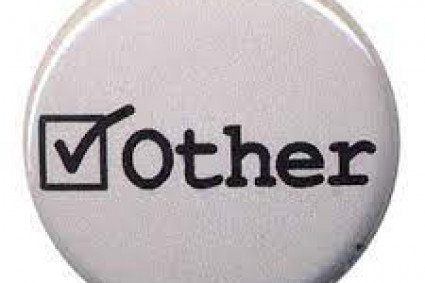
"Expectations play a crucial role in any relationship, whether it's a new relationship or a long-term commitment. They shape our perceptions of our partners and can either bring us closer together or drive us apart. Understanding and managing expectations in a relationship are essential for maintaining a healthy and happy partnership. In this blog post, we will explore the role of expectations in relationships, the importance of setting and communicating expectations, and tips for managing expectations in a way that benefits both partners. We will also discuss the importance of being flexible and open to change in order to keep the relationship strong."
6 tips for managing expectations in a relationship
1. Communicate openly and honestly about your expectations: One of the most important things you can do to manage expectations in a relationship is to communicate openly and honestly about your expectations. This means being clear and direct about what you need and want from the relationship, and discussing your expectations with your partner. By communicating your expectations, you can ensure that they are understood and respected. Good communication is the key to managing expectations and preventing misunderstandings.
2. Be realistic: When setting expectations in a relationship, it's important to be realistic. This means setting expectations that are achievable and within the realm of possibility. Unrealistic expectations can lead to disappointment. Be honest with yourself and your partner about what is possible and what is not.
Understand that your partner has expectations too: It is important to remember that your partner has expectations as well. Take the time to understand your partner's expectations, and make an effort to meet them. This helps to build trust and love in the relationship. By understanding and respecting your partner's expectations, you are creating a more balanced and healthy relationship.
3. Be open to compromise: In any relationship, there will be times when both partners will need to compromise in order to meet each other's expectations. Be open to finding a middle ground that works for both of you. Compromise is key to successful relationships, it shows that you are willing to put in the effort to make the relationship work.
Set clear boundaries: Clear boundaries are essential for managing expectations in a relationship. By setting clear boundaries, you can ensure that your needs and wants are respected and that both partners are on the same page. It is important to set boundaries that protect your emotional, and physical well-being. Communicate these boundaries clearly to your partner and make sure they understand them.
4. Practice active listening: Active listening is an important aspect of managing expectations in a relationship. By actively listening to your partner, you can better understand their perspective and find common ground. Active listening involves paying attention, asking questions, and responding appropriately. It helps to create understanding and mutual respect in the relationship. Show empathy: Showing empathy helps to manage expectations in a relationship by allowing you to understand your partner's feelings and point of view. Empathy helps to build a deeper and more meaningful connection in the relationship. When you are able to understand and relate to your partner's feelings, it can help to reduce conflicts and improve communication.
5. Be willing to adjust expectations: Be willing to adjust your expectations as needed to meet the changing needs of the relationship. This means being flexible and open to change, and being willing to adapt to new situations. Relationships are dynamic and evolve over time, it is important to be willing to adjust your expectations in order to keep the relationship strong and healthy.
Take responsibility for your own expectations: Take responsibility for your own expectations and don't place the burden of fulfilling them on your partner. It is important to understand that your partner is not responsible for your happiness, it ultimately comes from within. Being self-aware and taking responsibility for your own happiness can help to manage expectations in a relationship.
Be aware of your own triggers: Be aware of your own triggers and take responsibility for managing them. Triggers are certain situations or actions that can cause a negative emotional reaction. Being aware of your own triggers can help you to manage your expectations and reactions in a relationship.
6. The 2-2-2 rule can be used as a framework for managing expectations in a relationship by dedicating two minutes per day, two days per week, and two weeks per month to discussing and addressing expectations. By using these time intervals to reflect on and communicate expectations with your partner, you can ensure that your needs and wants are being met and that any issues or conflicts are addressed in a timely manner. During the two minutes per day, you can check in with your partner and express your expectations. The two days per week can be dedicated to deeper conversations about expectations and any adjustments that need to be made. And the two weeks per month can be used for regular check-ins to review and adjust expectations as needed. By following the 2-2-2 rule, you can create a more open, honest, and healthy relationship.
In conclusion, understanding and managing expectations in a relationship are essential for maintaining a healthy and happy partnership. Expectations shape our perceptions of our partners and can either bring us closer together or drive us apart. The key to managing expectations is good communication, being realistic, being open to compromise, setting clear boundaries, practicing active listening, showing empathy, and being willing to adjust as needed. The 2-2-2 rule can be a useful tool for managing expectations in a relationship by dedicating two minutes per day, two days per week, and two weeks per month to discussing and addressing expectations. By following these tips and tools, couples can build a more open, honest, and healthy relationship. Remember that relationships require continuous effort and attention, and it is important to make it a priority to manage expectations in order to maintain a strong and lasting relationship.




